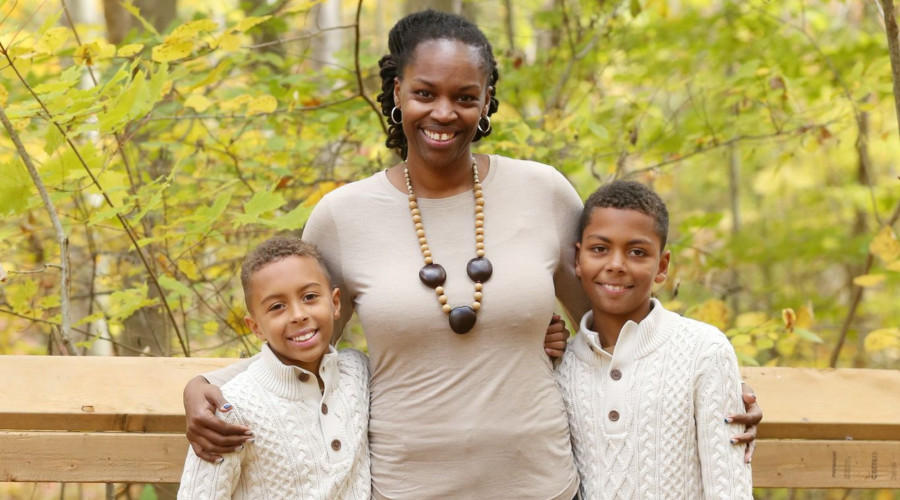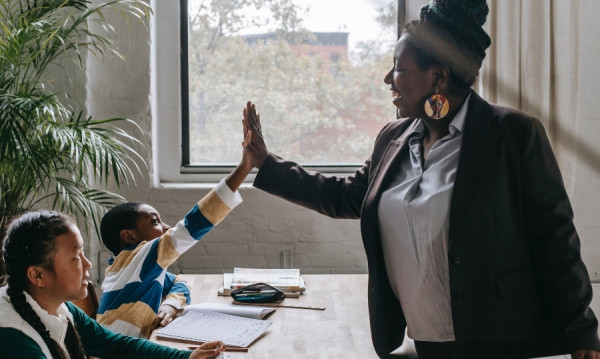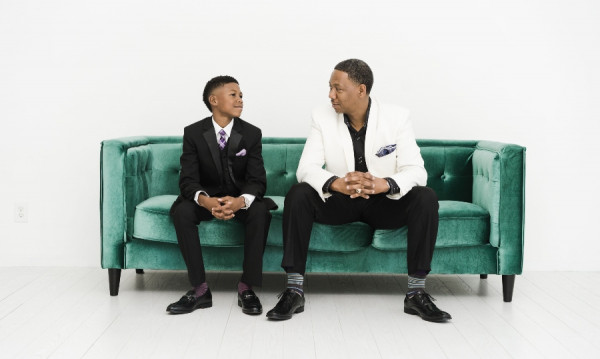I remember jokingly saying to the nurse who handed me twin B, “I don't think he is done yet?” As “light” as I thought that comment was, it perpetuated an ignorance and dismissive spirit that I do not support. I was already creating a divide amongst my children based on their skin colour.
Obviously, no malice was intended, but how damaging that rhetoric is that if the child isn’t a certain pigment, there's a problem. Looking back, I was using humour to deflect my fear that one of my children might not be seen as a “Black child”, and have struggles growing up. This mindset is harmful, and it is one as a Black community we need to work towards eradicating.
My own bias began from childhood. I was adopted as an infant, and raised by white parents. From the time I could understand racial differences - I put a subconscious expectation on them, on how to raise me to be a strong, confident, and successful Black woman. It wasn’t until I reached motherhood, that I truly understood what it must have been like for them to not only deal with raising a child, but raising a child who came from a different cultural background from their own. I spent my entire childhood trying to fit into Black friendship groups when possible, but I grew up in mostly white suburban areas-so it was difficult.
To be honest, I was more comfortable around my white friends because I felt I could relate more to them. It wasn’t until I found my biological family and began integrating into their system - that I learned there truly are cultural differences between white and Black families.
As a mental health professional with over two decades of experience working closely with youth from diverse backgrounds, I have observed a common theme among biracial children - the struggle to find where they belong. Here are five strategies for parents and caregivers to support their biracial children on their journey of self-discovery and acceptance.
1. Acknowledge and address your own biases: Parents need to recognize and confront their own biases regarding cultural diversity. In my own life, I have had varying opinions on how to raise my biracial children from different cultural perspectives. My children are fully Canadian, but their father is Dutch and I am half Nigerian. So there is a lot of responsibility to make them aware of their genetic makeup. I am acutely aware of older generations' viewpoints, but I choose to raise my children in a manner that supports my value system. Our past experiences and traumas should not influence how we guide our children to embrace their biracial identity. By creating a safe space for open dialogue, we can help our children form their own beliefs and feelings about their heritage without judgment or prejudice.
2. Foster a safe environment for questions: Encourage your children to ask questions about their heritage without fear of reprisal. By being a supportive and understanding presence, you can empower your child to explore their dual identity without feeling pressured to conform to societal expectations or labels. My own twins have asked me why I don’t learn more about my Nigerian heritage and I really have no excuses. I cannot expect them to be interested in it - if I don’t embrace it either.
3. Celebrate their unique heritage: Embrace and celebrate your child's cultural background by exposing them to diverse experiences, literature, and events that reflect their heritage. By instilling pride in their roots, you can help your child develop a strong sense of self and appreciation for their multi-ethnic makeup. With my own children, I try to incorporate Dutch and Nigerian customs during holidays. Whether it is partaking in cooking oliebollen (Dutch Doughnuts) at New Year's or attending African concerts and events.
4. Emphasize equality in cultural appreciation: Encourage your child to love and celebrate both sides of their heritage equally. In a society still grappling with issues of racism and inequality, it is vital to teach our children the value of embracing diversity without favoring one culture over another.
5. Encourage cross-cultural connections: Support your child in building relationships with individuals from various cultural backgrounds. By fostering friendships beyond their own community, you can help your child navigate the complexities of a diverse world with empathy and understanding.
Parenting biracial children comes with unique challenges, but by implementing these strategies, we can create a more inclusive and accepting environment for our children to thrive. Let us start a conversation that celebrates diversity and reshapes the narrative around biracial identity, making it a source of pride and strength for future generations.

 By
By 




